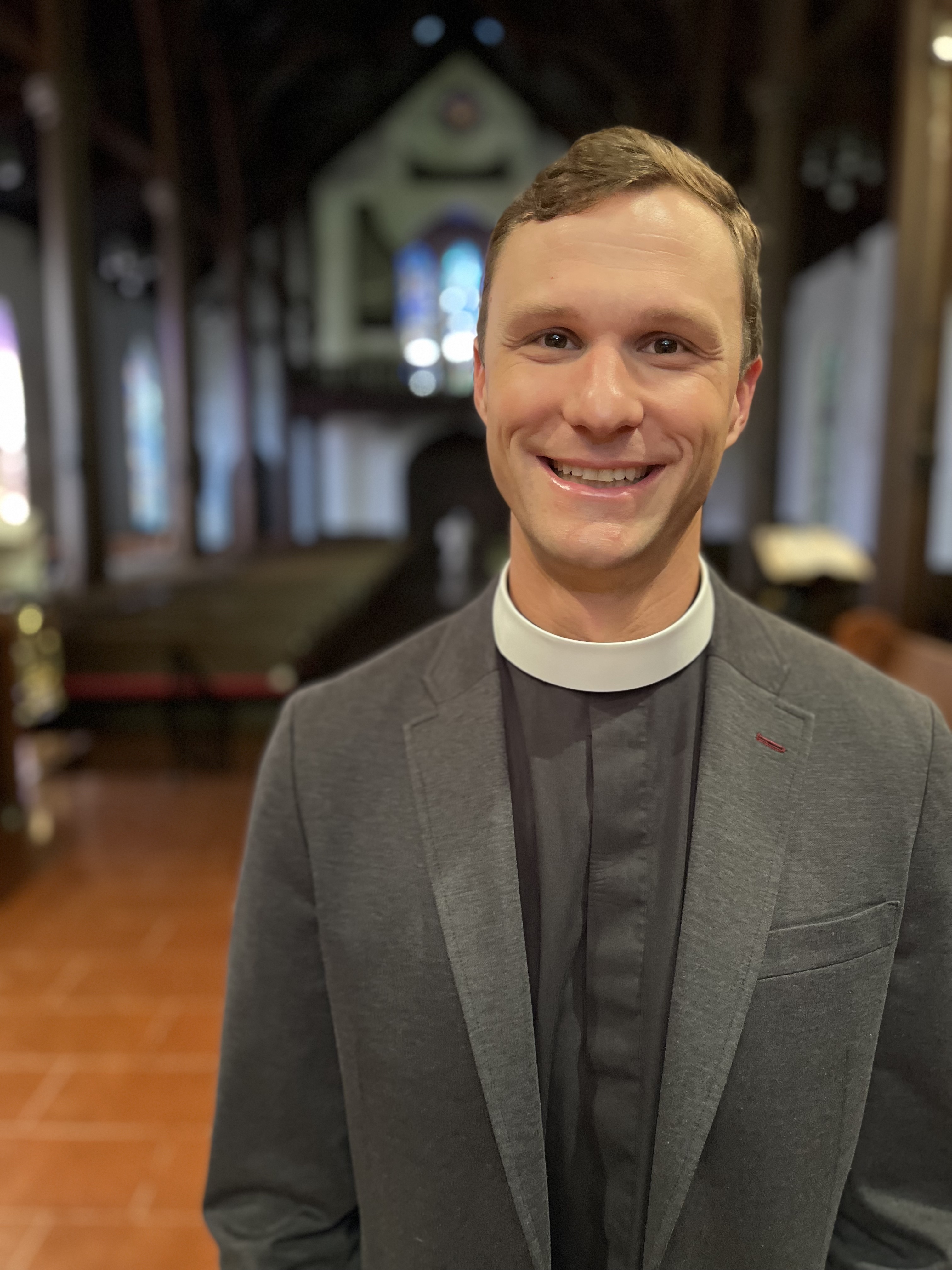Sermon for Seventeenth Sunday after Pentecost
September 23, 2012
Mark 9:30-37
The debate goes on among the disciples: “Who is the greatest?” Is it Peter? Is it James or John? Or maybe it’s Andrew or Thomas or Philip? “Who is the greatest?” They wanted to know who was the best preacher. Who was the best healer. Who was the best at casting out demons. Who had told the most people about Jesus the Messiah. They want to prove to one another that they are the greatest. They want to show Jesus that they are all grown up, that they are adults.
But to Jesus all this talk is immature, so he chides the disciples: “Whoever wants to be first must be last of all and servant of all.” It shouldn’t be a surprise that the disciples don’t quite understand what Jesus is saying. So taking a child from the crowd, Jesus says, “Whoever welcomes one such child in my name welcomes me, and whoever welcomes me welcomes not me, but the one who sent me.” So who are we welcoming?
Most churches are really good at welcoming adults. We have bible studies and ministries for adults – we encourage adults to serve on the Vestry, to sing in the choir, to take care of the church’s property. We want more adults to show up, to join our clubs, to work for God’s Kingdom and the Church. We are really, really good at welcoming adults because we ask them to do something. As a church, we are attractive to adults because we ask them to pitch in, to get their hands dirty, and to pour their blood, sweat, and tears into this place.
But if most churches are good at attracting adults, just as many churches are bad at attracting children and youth. But again, let me say, Holy Comforter has more children and youth than previous churches I’ve served in. And in those churches, I would sit down with youth ministers, agonizing over why youth aren’t attracted to their church. We would ask ourselves, “What do kids like to do?” Well, kids like to have fun! So we hosted parties and fun events for kids. Bowling parties, pizza parties, dance parties, swim parties, party parties. Almost as an afterthought we said, and oh yeah, God loves you!
So our youth ministries would look really successful for a while – when lots of kids are showing up to swim parties or playing paintball or whatever it is – but then our youth ministries would crash and burn when those kids graduate or leave. Our youth numbers decline when high schoolers realize they can have more fun with cars, dating, and football than they ever will at church.
And then we wonder why our children don’t go to church after high school. In their twenties, our adult children show up to church and they want to know, “Where are the pizza parties? Where are the video games? Where are the fun things we used to do in youth group?” But they’re adults now, and we expect them to work, and serve, and sacrifice, and pray. So of course they don’t want to stick around and serve on the Vestry, or be on the Altar Guild, or sacrifice their lives for the church.
This understanding of youth work has drastically changed my ministry. When I stepped back and saw what we had done, I was mortified. What we’ve made is a generation of kids who went to church for fun. We didn’t form a generation of Christians who went to church for God.
When Jesus tells his disciples to welcome children in their midst, I don’t think he means to make sure they have fun at church. I don’t think he means that we should section the youth off and “let them do their own thing.” Jesus tells his disciples to welcome children in their midst. Jesus is telling the disciples that children are full and equal members of God’s Kingdom. In the Church, this means children receive the same benefits as adults – they can receive communion, they join us in worship, they pray with us.
But at the same time, if we truly welcome children then we must give them an equal responsibility for working in God’s Kingdom. Children and youth will be more likely to come to church when they are asked to do meaningful work. Not separate, not “having the youth do” whatever project the adults don’t want to do. But I have realized that we form children into Christians when we ask them to sacrifice their lives for Jesus in the same way we ask adults to sacrifice their lives for Jesus. Children and youth will be more likely to become committed Christians when they are invited to participate in the work that we adults do in the Church.
Last Sunday, Kim Faasse, our youth minister, and I planned a 5:00 o’clock evening service here at Holy Comforter. It was a casual service, true – but no less “Episcopal” than any other service we do. The youth produced an awesome sermon by taking pictures of crosses they see in their lives and then we projected these pictures up on the walls.
But there was one moment in particular, one moment when we welcomed the children into our midst. I asked the children and youth to stand with me behind the altar as I said the Eucharistic Prayer. They followed along, praying in their hearts as I prayed with my lips. Then came time for the invitation, the point when I lift the bread and wine saying, “The Gifts of God for the people of God.” But rather than me holding up the bread and the wine, I handed the chalice and the paten to the children on my right and on my left.
And on my right, I won’t ever forget this, stood young Gavin Hoffmeyer. As I handed him the chalice full of wine, we could all see the shock on his face. His eyes were as big as saucers. With two hands he clutched that chalice scared of spilling even a drop of red wine on the white linen. Poor Gavin. I really should have warned him as to what I was going to do. But all I did was treat him like an adult. We integrated him into the life of the community. We didn’t section him off, saying “this is for adults only.” We gave Gavin a real and purposeful ministry in the church. I trust that this exercise did more to enliven his Christian faith than any amount of pizza or ice cream or laser tag we can throw at him.
 Because we don’t expect our youth just to show up and have fun. As a church, as Holy Comforter, we ask our youth to participate in real ways. Our children and youth stood next to adults, cutting brisket after brisket at the barbecue. Our children and youth kneel together with us to take communion. Our children and youth are not sectioned off to “do their own thing.”
Because we don’t expect our youth just to show up and have fun. As a church, as Holy Comforter, we ask our youth to participate in real ways. Our children and youth stood next to adults, cutting brisket after brisket at the barbecue. Our children and youth kneel together with us to take communion. Our children and youth are not sectioned off to “do their own thing.”
We have to treat our children and youth like adults now, so that when they become adults, they will know how to be Christians. They will know that it’s their turn to serve on the Vestry, to work with the Altar Guild, to run our outreach programs. My humble prayer is that when these children and youth grow up they won’t go to their local Episcopal Church and say, “where’s my pizza?” My prayer is that they show up to their local Episcopal Church and say, “where can I serve?”
What boils down to is this: Kim and I do not believe in consumer Christianity. We do not believe that great rock bands or awesome sound systems or all the ice cream in the world are going to help our children grow up into Christians. Entertainment is no substitute for worship. Consumption is no substitute for sacrifice. A successful youth ministry is not judged by how many kids show up. A successful youth ministry is judged by how well our kids are growing into their Christian faith.
And that is exactly what Jesus is telling his disciples. Yes, welcome all children into God’s Kingdom. But welcome them just as you welcome all people of all ages. Because it’s not about age. Remember, the disciples are being downright childish by arguing about who is the greatest among them. Maturity is not a function of age, but of wisdom.
If we want the Episcopal Church to languish in the coming years, struggling to preach the gospel, then by all means, treat our children as receptacles of fun and pizza. Treat them as children so that when they’re adults church is just a memory.
But if we want the Episcopal Church to thrive in the coming years, if we want our churches to be thriving centers of Jesus-work, then welcome our children just as Jesus welcomed the children. So in years to come, church won’t be a memory, but a reality.






Leave a comment